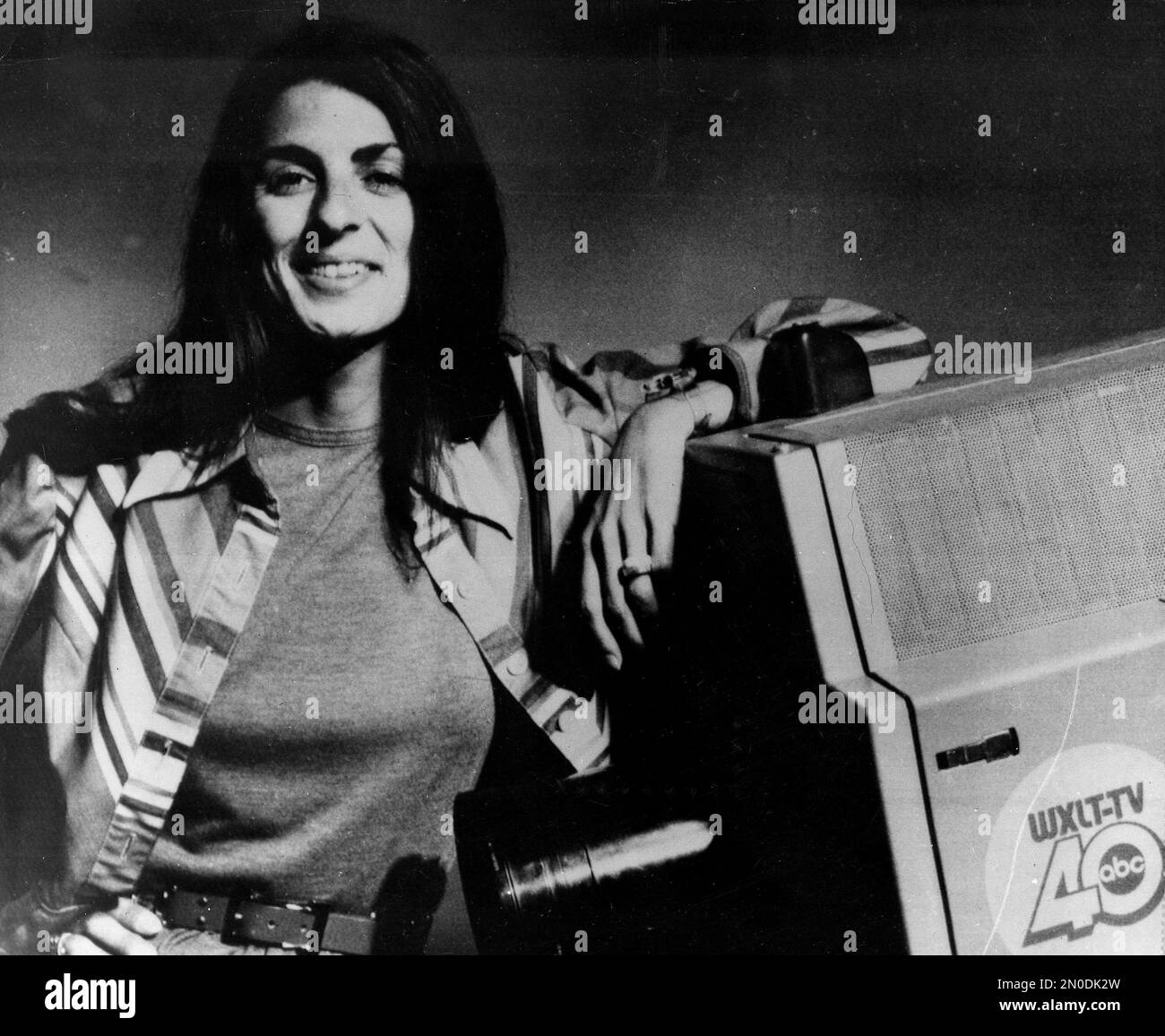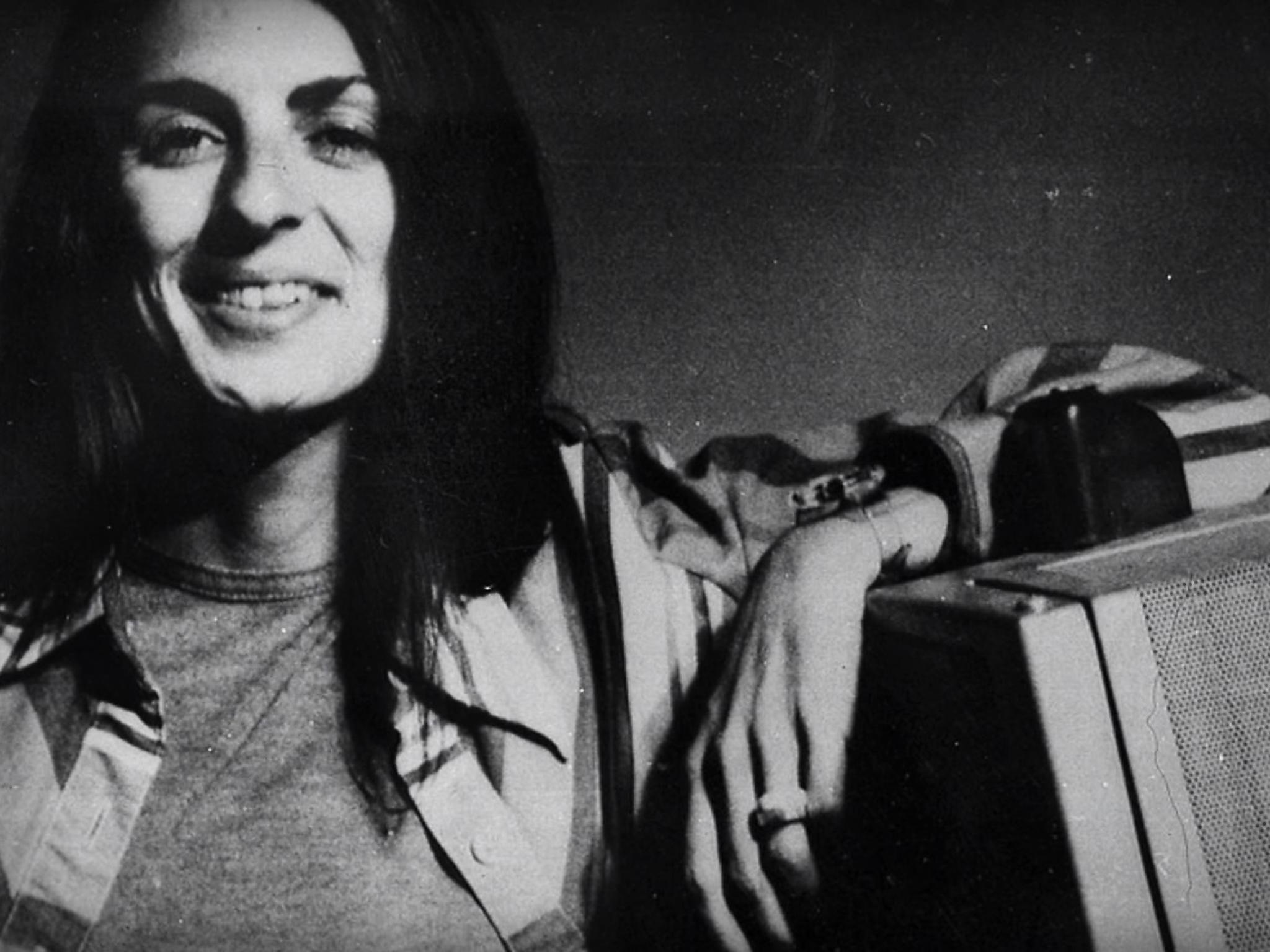Christine Chubbuck's Suicide: A Look Back & Mental Health - 988 Lifeline
Can a single, desperate act forever alter the landscape of an industry? The story of Christine Chubbuck, a journalist who took her own life on live television in 1974, remains a chilling testament to the hidden struggles that can reside beneath a polished public facade.
On a seemingly ordinary morning, July 15th, 1974, in Sarasota, Florida, viewers of WXLT-TVs "Suncoast Digest" were anticipating their usual dose of local news. Little did they know, they were about to witness a moment that would etch itself into the annals of television history, and a stark reminder of the importance of mental health. Christine Chubbuck, the program's host, began the broadcast as usual, delivering the news with her characteristic professionalism. But as the show progressed, she deviated from the script, delivering a chilling announcement. Then, in a moment of unimaginable despair, she pulled a .38 caliber revolver from under her desk and shot herself in the head. The broadcast, shockingly, continued, leaving the audience and the station staff in stunned disbelief. The immediate aftermath was a blur of confusion, shock, and disbelief, a maelstrom of emotions as people grappled with the reality of what they had just witnessed. The event was a tragic, unexpected reminder that even those who appear most composed can be battling unseen demons. The tragic act of suicide, as it happened, was a shocking, public, and brutal reminder of the unseen battles that individuals may be facing. Her final, desperate act was a cry for help, a public declaration of the pain and suffering that had consumed her.
| Category | Details |
|---|---|
| Full Name | Christine Powell Chubbuck |
| Born | August 24, 1944, Hudson, Ohio, USA |
| Died | July 15, 1974 (aged 29), Sarasota, Florida, USA |
| Cause of Death | Suicide by gunshot |
| Education | Laurel School for Girls (Shaker Heights, Ohio) |
| Occupation | Television news reporter, Host of "Suncoast Digest" |
| Station | WXLT-TV (now WWSB) in Sarasota, Florida |
| Notable for | Being the first person to die by suicide on live television |
| Family | Parents: Margaretha and George Chubbuck; Brothers: Greg and Tim |
| Inspiration | The movie Network (1976) was inspired by her suicide. |
| External Link | Wikipedia - Christine Chubbuck |
Christine Chubbucks life, though tragically cut short, had a familiar beginning. Born in Hudson, Ohio, in 1944, she was the daughter of Margaretha and George Chubbuck. She had two brothers, Greg and Tim. As a young woman, she attended the Laurel School for Girls in Shaker Heights, part of the Cleveland metropolitan area, before embarking on her career in broadcast journalism. The foundations for her later achievements were laid with her education and ambitions, though the full extent of her internal struggles remained hidden from the public eye.
- What You Need To Know About Ali C Lopez Gorlock The Destroyer
- Brittany Bakeer Model Social Media Star Mustknow
In the years leading up to that fateful morning in Sarasota, Chubbuck had established herself as a talented and ambitious journalist. She was the morning host of "Suncoast Digest" on WXLT-TV, a local news program. Those who knew her described her as a dedicated professional, someone committed to her craft. Yet, beneath the surface, she was battling depression, a struggle that ultimately led to the tragic events of July 15th. The incident, though shocking in its immediacy, was the culmination of many factors, including a difficult battle with depression, professional pressures, and, perhaps, a sense of isolation.
The circumstances surrounding her decision have been the subject of much speculation and analysis in the years following her death. The incident sent shockwaves across the media landscape, causing many in the industry to ponder the hidden struggles that people in the public eye might face. She was, in a way, a victim of the very industry she worked in. Her suicide was a dramatic illustration of the need to address mental health issues and to be more mindful of the human side of the news.
The immediate aftermath of Chubbucks suicide was one of stunned silence, followed by a frenzied media response. The broadcast, though brief, left an indelible mark on those who witnessed it. The raw, unfiltered nature of the event made it unforgettable. The chilling reality that suicide could occur in the most public of spaces sent shockwaves across the world. There was a palpable sense of disbelief, a question of how this could have happened.
The impact of Christine Chubbucks death has resonated far beyond the initial shock. Her story has served as a somber reminder of the importance of mental health awareness and the devastating effects of depression. It also sparked discussions about media ethics, the pressures of the news industry, and the responsibility of broadcasters to their audiences and their employees. Her story inspired the movie "Network," a 1976 film that satirized the television news industry and was, in part, inspired by Chubbucks death. The film, with its dark humor and cynical view of the media, captured some of the anxieties that were bubbling beneath the surface of the television landscape.
In the years since her death, there have been attempts to understand the factors that contributed to her tragic decision. Documentaries, articles, and books have explored her life, her career, and the events leading up to that fateful morning. Two new films tried to unravel why she did it. Her story, though largely forgotten by the general public, remains a potent symbol of the complex challenges that individuals face, and the need to address them head-on. The legacy of Christine Chubbuck is a reminder that even in the most public of settings, the most personal of battles can be waged. The 988 Suicide & Crisis Lifeline is available 24/7 if you're in distress; you can connect with a trained crisis counselor by calling or texting 988 in the US and Canada, and by calling 111 in the UK.
The case of Christine Chubbuck is a chilling example of the impact of mental illness and the tragedy it can cause. Her life, though short, serves as a potent reminder of the importance of mental health awareness, and the need to offer support to those who struggle. The story of Christine Chubbuck underscores the need for empathy, understanding, and the willingness to reach out to those who may be suffering in silence. The story of Christine Chubbuck is a haunting testament to the importance of mental health awareness, and the devastating impact that depression can have. It serves as a stark reminder that the issues are very real, and should be taken seriously. The tragic event underscores the need for open conversation, support systems, and a commitment to prioritizing mental wellbeing.
In a bizarre coincidence, the Sundance Film Festival included two films that explored the life and death of Christine Chubbuck. This, along with other recent media attention, highlights a renewed interest in her story, a quest to understand the circumstances that led to her tragic act, and a deeper look at the pressures faced by those in the media. This renewed interest shows a growing awareness and understanding of mental health issues, and a willingness to explore the complexities of the human experience.
Her story has been largely forgotten, but the two new films try to unravel why she did it. The enduring tragedy of Christine Chubbuck is a reminder of how fragile life can be. She got headlines for blood and guts, which is what she abhorred. "Salon" talks to Rebecca Hall, who portrays the newscaster who committed suicide on air. On the morning of July 15th, 1974, at around 9:30, American television news reporter Christine Chubbuck shot herself in the head on live television, following a fierce battle with depression. The now notoriously elusive broadcast stunned audiences, making headlines worldwide. The news and images surprised thousands of people. Christine Chubbuck (24 de agosto de 1944 15 de julio de 1974) fue una periodista estadounidense, que gan notoriedad y es recordada principalmente por su suicidio en vivo. La maana del 15 de julio de 1974, Chubbuck se dio un tiro en la cabeza en televisin abierta, tras lidiar un largo tiempo con una fuerte depresin. La noticia y las imgenes sorprendieron a miles de personas.
- Explore Lady K The Sick Man Your Guide To The Story
- Discover Benjamin Salisbury The Nanny Star Beyond

Anchorwoman Christine Chubbuck of WXLT TV in Sarasota, Fla., is
.jpg)
First person to die by suicide on live television said heartbreaking

Playing Christine Chubbuck Rebecca Hall on portraying the broadcaster